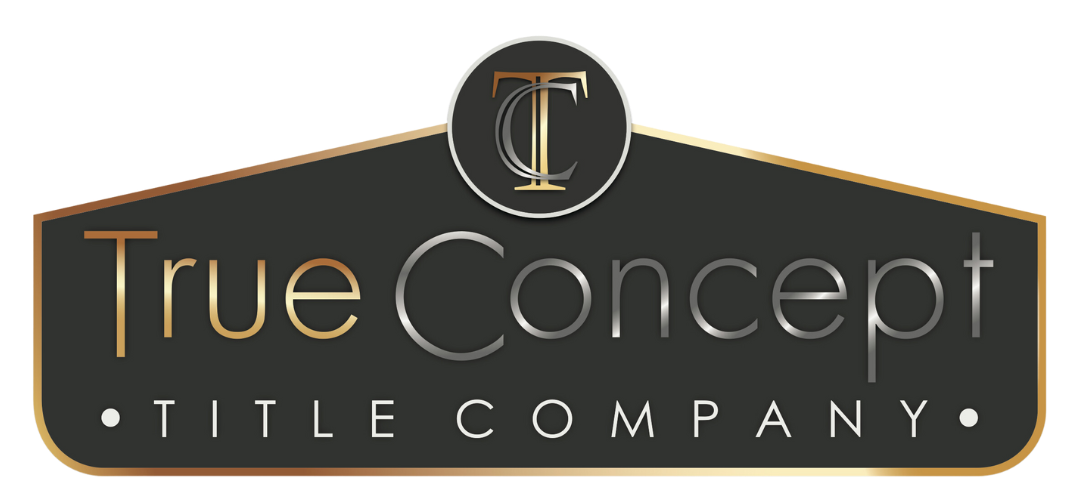How to Protect Yourself from Title Fraud
We hate to say it, but title fraud is a real threat that you need to be aware of if you are a homeowner or plan to purchase a home in the future. The FBI has discovered situations across the United States where home titles have been stolen. Identity theft reports have more than doubled since 2019, and more of these criminals are forging titles and stealing property.
Do you know what home title theft is and how to ensure you avoid it? In the unfortunate circumstance that your title is stolen, do you know the appropriate actions to take? In this post, True Concept Title provides answers to these questions to help you stay protected from title fraud.

What is Home Title Fraud?
Home title fraud, also called title theft or deed theft, occurs when a home title is fraudulently transferred to another individual’s name. The criminal first steals your identity and then counterfeits a title document in your name.
Several situations can be a gateway for title theft to occur:
- The title thief can refinance your mortgage, steal the cash from the equity, and walk away without making payments on the new loan. This can result in your home facing foreclosure.
- They can use your name to open a home equity line of credit (HELOC) and steal the cash without making any payments.
- The thief can target your vacation home or rental property, using the forged title document to sell the home and make money without you noticing.
- They can manipulate seniors or struggling homeowners with a “refinancing offer.” This deal is put on record as an actual sale that transfers ownership to the criminal.
Actions to Take if Your Property Title is Stolen
Having your title stolen is incredibly overwhelming and stressful. If this happens to you, first stop, and take a deep breath. Your life is not over. It is important that you compartmentalize the emotional aspect of this situation so that you can act quickly and move strategically.
It’s important that you are aware of what can happen if your title is stolen, so you can know what to expect and how to react. If your title is stolen and you don’t know, you can lose your property as a result of the thief selling or not paying the mortgage, which leads to foreclosure.
Title theft is one of the ways criminals use a stolen identity. If your home title is stolen, you should follow the Federal Tade Commision’s steps to handling identity theft. Here’s what to do:
- Call the companies where fraud took place
- Contact your creditors to place a fraud alert and pull your credit reports
- Report identity theft to the FTC
- File a report with your local police
Calling the appropriate companies where fraud occurred is a crucial step in this process. Reach out to your mortgage lender, your title insurance company, and perhaps your real estate attorney.
Should You Be Worried About Your Title?
In 2017, the FBI reported 9,600 victims lost over $56 million dollars as a result of title fraud. Your home is a big target for identity thieves, as it has more value than a stolen credit card. The most likely victims of this crime are those who are not watching out for fraud, such as seniors, or people who own a second property.
The more closely you pay attention to what’s coming in and going out- such as bills, notices, and bank statements- the smaller window a thief will have to commit a crime, meaning you’re a less likely target.
Learn More > Protect Yourself from Wire Fraud
Tips to Protect Yourself from Title Fraud
There are many ways you can protect yourself from title theft. These criminals are seeking out easy targets, so make yourself formidable and not worth attacking. Being aware is the number one thing you can do to protect your title. This entails:
Watch Out for Missing Bills
If routine bills stop showing up or randomly change, your identity and title may be compromised. If you notice you never received a bill or automatic charge to your account, contact the company as soon as possible.
If you miss important bills, your home could be at risk of foreclosure. Even if it’s just a small clerical error, you can make your life much easier by being proactive.
Regularly Check Your Credit Report
Monitoring your credit report on a consistent basis can save you from missed payments, fraudulent charges, and identity theft. If you are regularly checking your credit, you can catch signs of title fraud before it cascades into a serious and life-altering problem.
Invest in Title Insurance
Working with a title company ensures that the home title is free of any clouds such as claims or liens against the property. Lender’s and owner’s insurance are the two kinds of title insurance that will guarantee both you and your mortgage broker are protected in the case that any clouds on the title are discovered after the title is transferred to your name.
Our title experts at True Concept Title will do everything in our power to ensure your title is clear of any problems and that issues with your title moving forward won’t negatively impact you.

Secure Your Assets with True Concept Title
The digital age has brought great benefits to society, but unfortunately, as with all tools, it can be used for both good and bad. The lack of security around our personal data leaves it at risk of being leaked to people who will take advantage of our information and commit cyber-crimes that can ruin lives.
This reality doesn’t mean you need to waste energy worrying about title fraud. Fortunately, there are many steps you can take to secure your assets and prevent your title or identity from being stolen. Stay aware, monitor your bills and credit, and take the steps to be insured against title issues with True Concept Title.
Rely on a team you can trust to keep your assets safe and secure. Call True Concept Title today – (813)-263-7168.










